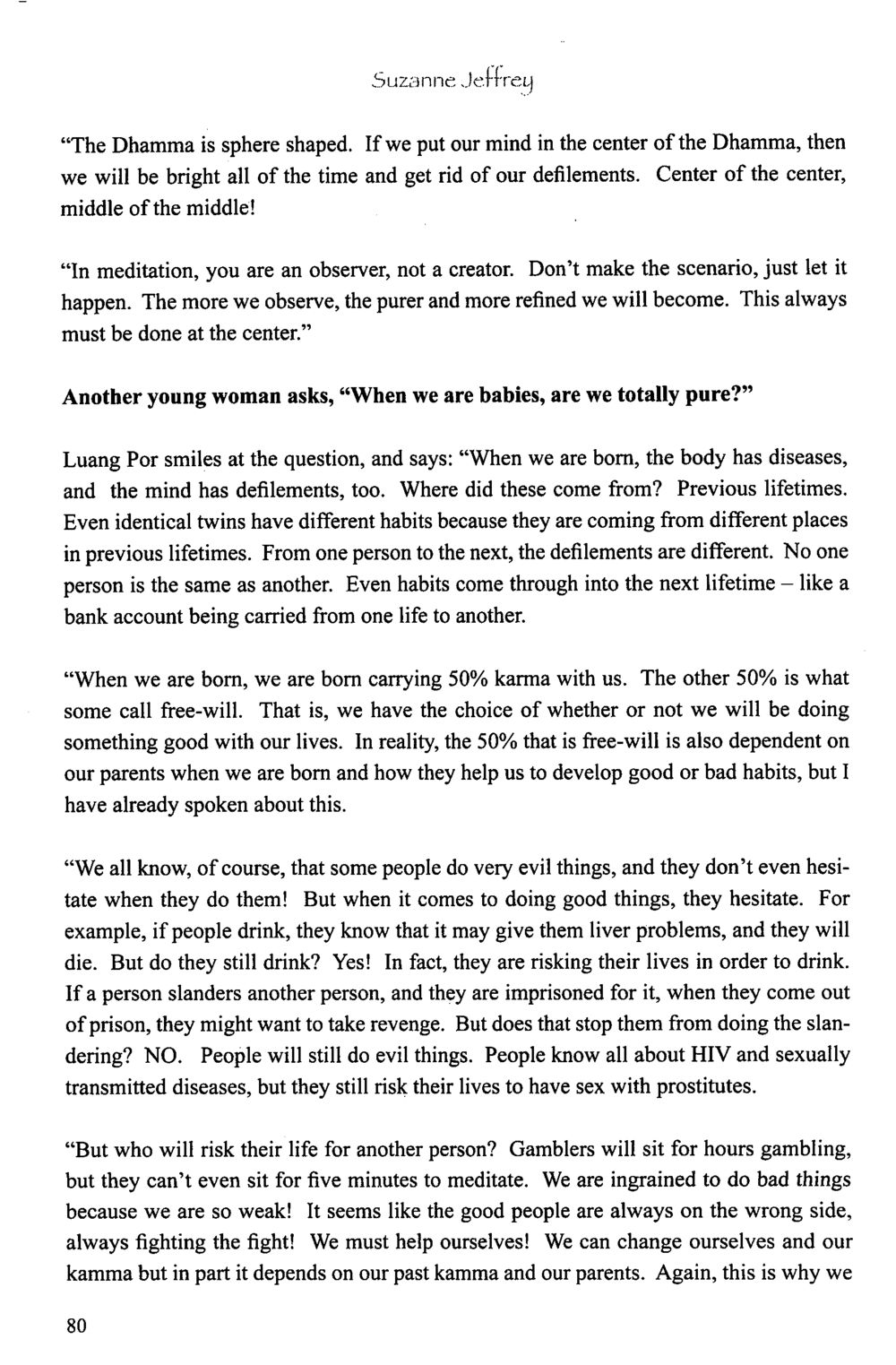Understanding Dhamma and the Influence of Karma : หน้า 82/164
The Meeting with a Dhamma Master : หน้า 82/164 Explore the concept of Dhamma as a sphere and the role of meditation, karma, and free will in shaping our lives.
0 ครั้ง

สรุปเนื้อหา
In this insightful discussion, Luang Por elaborates on the nature of Dhamma, emphasizing that if we center our minds in Dhamma, we can attain clarity and diminish our defilements. He explains that while we are born with a mix of karma and free will, our experiences and choices are influenced by past lifetimes and parental guidance. People often engage in harmful behaviors despite knowing the consequences, highlighting the struggle between good and evil actions. Luang Por encourages self-help and awareness in navigating these challenges and emphasizes the importance of meditation as a means of personal refinement. By observing rather than creating scenarios in our mind, we can evolve positively despite our ingrained habits and tendencies. The journey of understanding and applying these teachings can lead to profound changes in our lives, resulting from our awareness and choices rather than being dictated solely by past karma.
หัวข้อประเด็น
-The nature of Dhamma
-The role of meditation
-Influence of karma on personal behavior
-Free will versus past karma
-The significance of observing in meditation
-Challenges of doing good versus evil
-The impact of parental guidance on habits
ข้อความต้นฉบับในหน้า
หน้าหนังสือทั้งหมด




































































































































































